A record-breaking 71% of eligible Washington University in St. Louis students voted in the 2020 presidential election compared with 66% of students nationwide and 67% of the American public. It’s significant that Washington University students voted at a higher rate than the general population, said Stephanie Kurtzman, the Peter G. Sortino Director of the university’s Gephardt Institute for Civic and Community Engagement.
“WashU students are paying attention to our nation’s civic challenges, and they came out to vote in the middle of a pandemic when the logistical barriers were significant,” Kurtzman said. “Our students understand that when they vote, they impact an election’s outcome and they also shape the future. Elected officials tend to listen most closely to those who vote.”
Students nationwide voted at higher rates than in 2016. In that election, 62% of eligible Washington University students voted, compared with 53% of college students across the nation. (Preliminary data suggested lower rates for both the nation and the university; that data were revised upward in 2021.)
The data come from the Institute for Democracy & Higher Education (IDHE), creators of the National Study of Learning, Voting, and Engagement, the nation’s largest study of college and university student voting, capturing 8,880,700 voting-eligible students representing 1,051 colleges and universities. IDHE is located at Tufts University’s Tisch College of Civic Life.
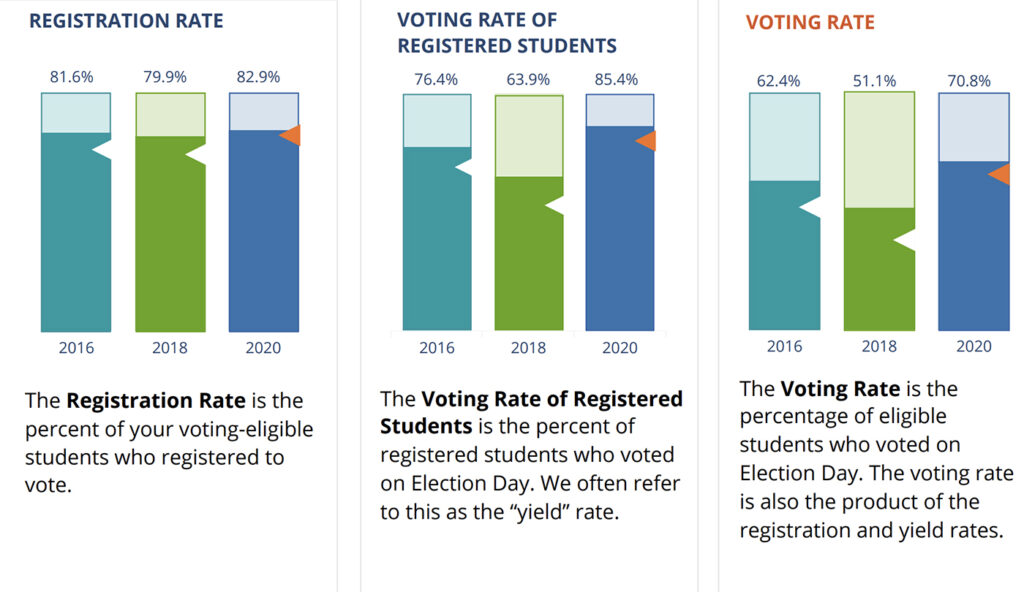
“We attribute this high level of participation to many factors, including student activism on issues such as racial injustice, global climate change and voter suppression, as well as increased efforts by educators to reach students and connect them to the issues and to voting resources,” said Nancy Thomas, IDHE director.
At Washington University, students of every race and ethnicity turned out at higher rates. In addition, 85% of registered Washington University students actually voted compared with 76% in 2016.
“Registration is the first and necessary step,” Kurtzman said. “But the hard work is translating that registered status into a vote.”
To that end, the Gephardt Institute’s Engage Democracy Initiative hosted academic and co-curricular programming that explored top issues, established voter engagement hubs in departments across campus where students could find voting resources, and offered extensive technical support, from providing notaries for absentee voters to operating a safe voting site at the Athletic Complex. Those efforts and more have earned Washington University Voter-Friendly Campus status for three years in a row.
“The entire campus stepped up,” Kurtzman said. “Chancellor Martin conveyed the importance of respectful dialogue, the mail room helped us distribute free postage and envelopes, and the WashU Votes student committee was incredibly innovative in reaching students in the midst of the pandemic. This was only the tip of the iceberg. It was a true universitywide effort.”
Still, there is plenty of room for improvement, Kurtzman acknowledged. Graduate students voted at a slightly lower rate than 2016 as did business and math students. The Gephardt Institute’s Voter Engagement team will take a deep dive into the data and develop new strategies and campus partnerships to reach lower-turnout voters.
Kurtzman also is looking for new ways to build on 2020’s momentum to increase participation in local and state elections as well as to boost engagement beyond the ballot box.
“That’s why we encourage students to register as voters, not simply to register to vote. Being a voter is an identity, not a periodic action,” Kurtzman said. “There is no doubt voting rates are lifted by the national civic angst so many are experiencing in our country. But if we do our work well, we are cultivating voters and engaged citizens who will continue being active in civic life regardless of who or what is on the ballot.”
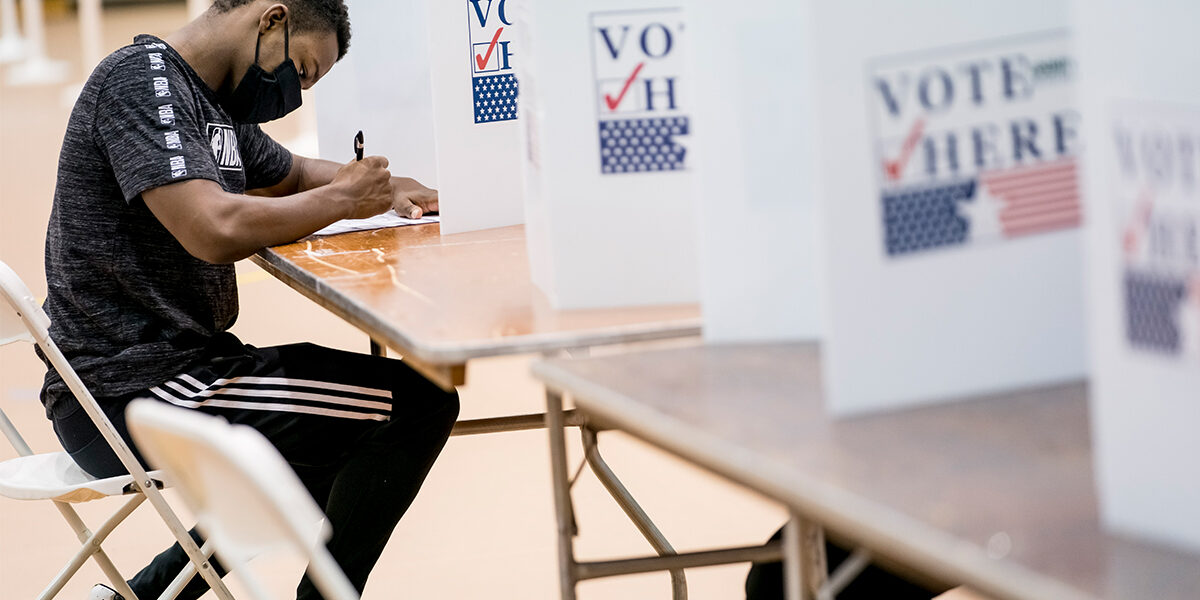
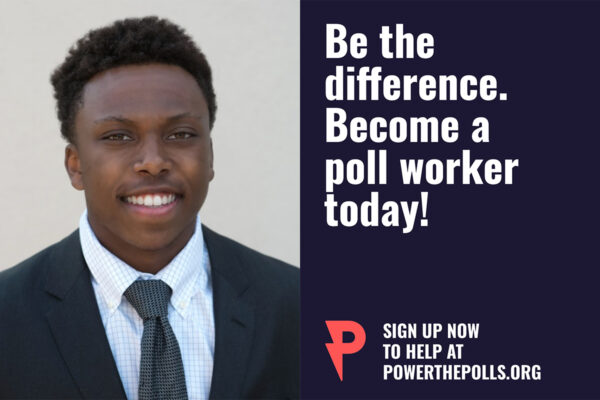
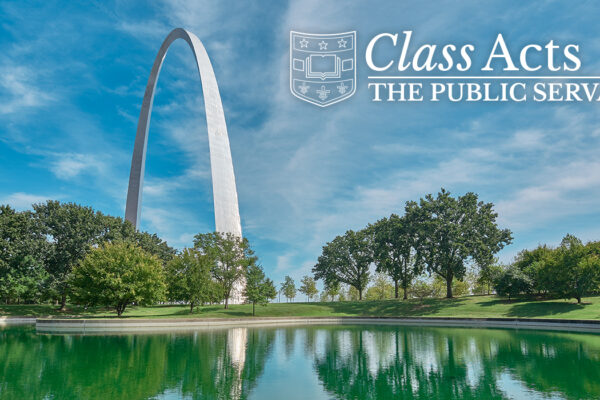
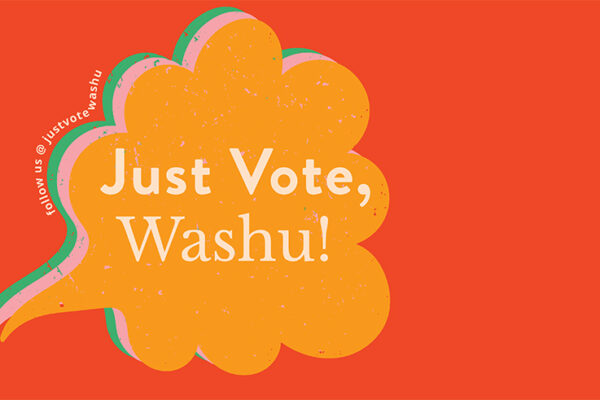
Comments and respectful dialogue are encouraged, but content will be moderated. Please, no personal attacks, obscenity or profanity, selling of commercial products, or endorsements of political candidates or positions. We reserve the right to remove any inappropriate comments. We also cannot address individual medical concerns or provide medical advice in this forum.